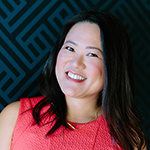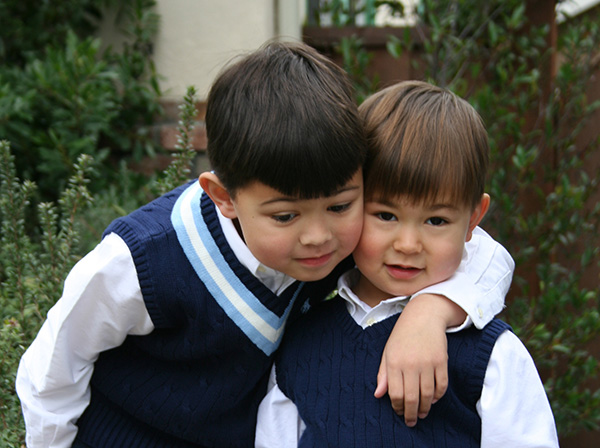Back
Black
Brown came back.
Brown came back with Mr. Black.
— from Hop on Pop, by Dr. Seuss
This verse from Dr. Seuss’ Hop on Pop always reminded me of my two sons. From an early age, Little Brother was very aware of his light brown hair and how he felt “different” from the rest of our family. Noah Cho’s recent essay How I Learned to Feel Undesirable on NPR Code Switch also highlighted how a mixed-race person’s appearance affects how they perceive themselves racially. Noah writes:
When I look in the mirror, I do not see someone that I understand to be handsome by Western standards. I look mostly Asian, and like so many other heterosexual Asian males before me, I have internalized a lifetime of believing that my features, my face, my skin tone, in tandem, make me unattractive and undesirable.
Back when I was in college, I took an English Lit class focusing on post-Civil War Southern fiction, in which the idea of “twinning” was a big theme. By twinning, I mean the concept that there could be mixed-race twins, in which one sibling “passes” for white, and the other one is visibly black. I think about this often, as I watch my own sons developing their own personal and racial identities. As much as I try to emphasize to my children that they are multiracial — both Asian and white — they seem to be drawn to a more simplistic view. Big Brother seems to have a much stronger identification with being Asian – perhaps because he attended Chinese school for several years, or because he spent more time with my Taiwanese mother when he was a toddler, or perhaps because he is darker complexioned and there is no mistaking that he is not white. Sometimes, he’s been assumed to be Latino, given that we live in California. Ironically, it was my fair complected younger son who experienced racial taunting in the form of slanty-eyed gestures.
These are not very complete thoughts here… but I’m just starting a conversation which I know I’ll be coming back to again…
What about your family? If your kids are hapa, how do they perceive themselves? Or if you are a mixed-race adult, how has your appearance influenced your racial identity?


I find it very interesting on how much outside influence you receive as a hapa child in shaping your racial identity at that age. Everyone in my family has black hair. My father is part American Indian and Caucasian, and my mother is mostly Japanese. So everyone in my family has black hair, and can tan fairly easily. My brother has black hair and a darker complexion, but I was born with orange carroty hair and super pale skin, a genetic throwback to who knows which ancestor. My mom was so happy when my hair turned blonde as a toddler, but I still stuck out. When I met some 100% ethnically Japanese American cousins, one said “No way, my cousin IS BLONDE? Are you adopted? Are you albino?”
In elementary school, where I lived was almost completely Caucasian. I was the weird girl who ate all the Asian food, brought whole dried mini fishes as snacks and ate dried squid. One of my friends was also hapa, and we were the “Asian” kids at our school.
Then, I went to a magnet high school where at least 70-80 percent of my classmates were Asian American. I didn’t consider myself Asian American compared to them; at that time I identified as Caucasian. I was the token “white” kid, the only blonde in most of my classes. In school, people who tell me I was lying about being part Japanese would tell my brother “oh I can totally see it!” I fantasized about dyeing my hair dark and wished I could tan, while my mom encouraged me to get my hair highlighted to keep it at a lighter shade of blonde.
Funnily enough, both my brother and I now both strongly identify not with one race, but as hapa despite all our differences growing up. Once the pressures of school life was lifted, where people are pegged as “popular” or “nerdy” in black and white labels, we settled into what fit us most comfortably. I still get a lot more flak (i.e. Kids at UCLA demanded why a white girl would want to take Asian American Studies) but I think our upbringing, which strongly emphasized pride in our multiraciality, ended up winning over outside influences.
I never did dye my hair dark either, and even though fake tanner has come a long way I’ve never used it. In the end: Proud hapa and proud blonde I guess.